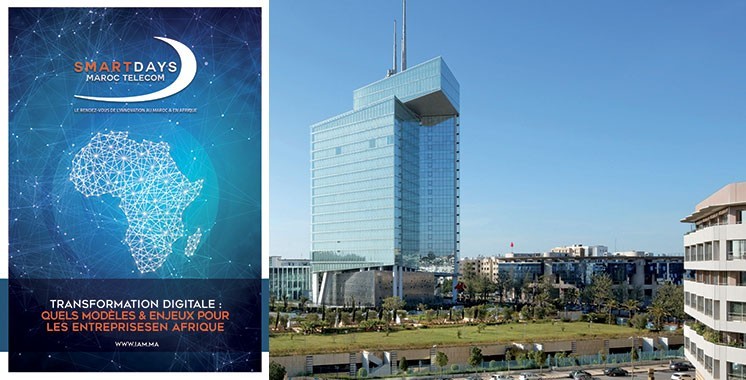435 million Internet users are in Africa. The penetration rate is 82% in 2017 for 1.040 billion mobile connections with an annual increase of 4%.
The 2nd smart days of Maroc Telecom, organized Tuesday in Rabat, are an opportunity to set up an environment of exchange and mobilization of intelligence. These days, devoted to the digital transformation in Morocco and Africa, highlight the role of the historical operator of the Kingdom as a catalyst for this transformation in the country and the continent. To explain this conversion, two interventions followed one another during the event.
The opportunities for Africa according to the French Gilles Babinet
Before speaking about these opportunities, Gilles Babinet, digital entrepreneur, author and digital champion for France at the European Commission, went back 50 years to the Gordon Moore law. The latter, one of the founders of the first microprocessor company, estimates that the tools double power in 24 months. “This prediction is still valid,” says Babinet. The French entrepreneur then goes on to historical facts. In 1976, the first computer was connected to the Net. The year 1990 saw the birth of microcomputers. As for the year 2000, it was marked by the emergence of home computing. After that, there was the appearance of smartphones. “In sub-Saharan countries, the design of smartphones is similar to that of the West but with low costs,” he added. Also, these countries have, according to him, opportunities in several areas including the agricultural one. In the meantime, he is advancing figures for the future. By 2025, voice and text-connected phones will be connected to the Net and 8½ billion phone subscriptions will take place with IP access.
Technology to fix people on their territory
The speaker bounced back on Africa where 15 countries, including Kenya, stand out and achieve growth of 2 to 3% through digital transformation. In this country, one-third of GDP is made up of mobile banking, which, according to Babinet, represents an opportunity and through which 50% of transactions are made. Through the occasion, the speaker does not miss to express himself also around the cloud which allows “to reach sophisticated solutions while being connected”. In turn, the data allows to have unique experiences. The goal is to create a platform with a progressive roadmap. About Europe, he says that 800 thousand digital software will be exportable in 2020. “This is an opportunity for Africa,” he said. This opportunity is also underestimated in the eyes of Mr. Babinet who finds that technology makes it possible to fix people on their territory by joining forces with start-ups. In this sense, he leads the example of young people leaving rural areas for the city.
Figures
Also on hand, Rebecca Enonchong, Technology Promotion Entrepreneur in Africa and winner of the World Economic Forum Award, went into numbers. Thus, 435 million Internet users are in Africa. The penetration rate is 82% in 2017 for 1.040 billion mobile connections with an annual increase of 4%. 191 million users are active on social networks. In addition, 175.5 million smartphones were sold in Africa in 2017. In turn, 77 start-ups were able to raise $ 366.8 million from investors in 2016, an increase of 33% compared to 2015 ( $ 276 million). For her, “Africa is underestimated. Neither Africans nor the rest of the world understand the digital transformation in the continent. “


Leave a Reply